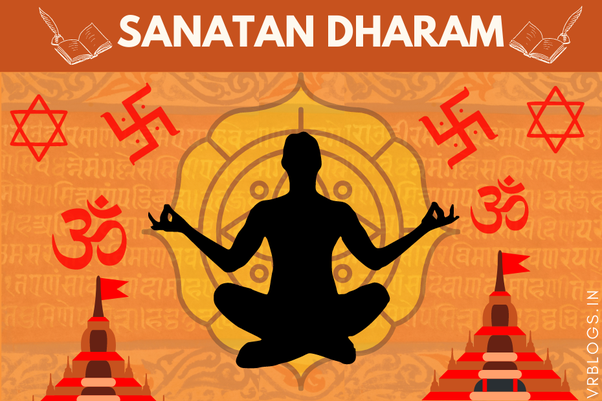"PRAHYANA" the meaning of this word "journey or eternal way" also said to be "eternal law" refers to Hindu Dharma, also called Santana Dharma the Law governing the path you take to attain Moksha.
The tradition is ancient, pluralistic, and has many different parts. It does not have a single, strict set of rules for behaviour. Instead, it has many teachings, texts, and philosophical schools that help people live morally and reach their spiritual goals. The following summarises some well-known Hindu ideas and principles that affect how people act and make moral choices.
1. Dharma
Dharma is often translated in English as right and wrong, duty, moral order, or virtue. It includes one's duties and the moral rules that balance the universe and society. People have different responsibilities depending on their position in their family and society. Social harmony encourages people to do things that are good for everyone and follow moral standards.
Universal Values: Truth (Satya), nonviolence (ahiṃsā), and kindness are important parts of universal dharma. Hindu ethics are based on dharma, which is like a moral compass that tells people how to maintain balance (ṛta) in their lives, in society, and in the universe.
2. Karmic (गर) It's precise meaning is "action." Hinduism stands for both action and the moral law of cause and effect, which says that every action, whether physical, verbal, or mental, has results that affect how a person lives in the future.
It encourages people to take responsibility for their actions since evil actions lead to bad results (and vice versa). Through saṃsāra, the circle of rebirth affects a person's personality and the events that happen in their lives in this life and future lives. It stresses the significance of living morally and being self-aware, knowing that all actions have seeds that grow into results, whether they are good or bad.
3. Saṁsāra (संसार) and Mokṣa (मोक्ष)
Karma causes the never-ending circle of birth, death, and rebirth. People believe life is a trip through many bodies where the soul (ātman) grows spiritually. Moksha means freedom from this cycle. You can get it through spiritual understanding (jñāna), devotion (bhakti), disciplined action (karma-yoga), or a mix of these. Being moral (in line with dharma) and learning more about yourself can help you overcome ignorance and pain.
4. The Four Puruṣārthas (पुरुषार्थ) – Aims of Life
A key framework in Hindu ethics is the notion of four pursuits or aims that guide a balanced life:
- Dharma (धर्म): Ethical duty and moral order.
- Artha (अर्थ): Material prosperity, security, and means of life.
- Kāma (काम): Desire, pleasure, and emotional fulfillment.
- Mokṣa (मोक्ष): Spiritual liberation and freedom from the cycle of rebirth.
The idea is to harmonize worldly aspirations (artha and kāma) with moral imperatives (dharma) and ultimately aspire for spiritual freedom (mokṣa). Actions that ignore dharma for the sake of wealth or pleasure alone are generally considered misguided, while a life that neglects worldly responsibilities can also be seen as incomplete.
5. The Four Āśramas (आश्रम) – Stages of Life
Traditional Hindu thought often divides life into four stages (āśramas), each with its own duties and expectations:
- Brahmacarya : Student Life focus on study / acquire knowledge (jnana), discipline / dedication (bakthi), and celibacy; laying the foundation of character and knowledge.
- Gṛhastha : Householder Life who experience married life, raising a family, contributing to society, and managing worldly responsibilities.
- Vānaprastha : Retirement or Forest-Dweller who gradual withdrawal from worldly duties, turning attention to spiritual pursuits.
- Sannyāsa : Complete renunciation of worldly ties and dedication to spiritual liberation.
These stages recognize that ethical duties evolve as one’s life circumstances change, but always remain guided by dharma and the pursuit of higher truths.
6. Yamas and Niyamas (from Yoga Tradition)
While Yoga is often associated with postures (āsanas), the ethical teachings in Patañjali’s Yoga Sūtras are widely revered as universal guidelines within Hindu philosophy. They are:
Yamas (Restraints or Moral Disciplines)
- Ahiṃsā (Non-Violence): Avoid causing harm in thought, word, or deed.
- Satya (Truthfulness): Truth in speech and action.
- Asteya (Non-Stealing): Refrain from taking what is not rightfully yours.
- Brahmacarya (Continence / Right Use of Energy): Often interpreted as celibacy for renunciates; more broadly, the wise channeling of life energies (including sexual energy).
- Aparigraha (Non-Possessiveness): Avoid greed and attachment to material possessions.
Niyamas (Positive Observances)
- Śauca (Purity): Cleanliness of body, mind, and environment.
- Santoṣa (Contentment): Cultivating gratitude and satisfaction with what one has.
- Tapas (Disciplined Effort): Willpower, self-discipline, and austerity to strengthen character.
- Svādhyāya (Self-Study): Study of sacred texts and self-reflection to deepen understanding.
- Īśvarapraṇidhāna (Surrender to the Divine): Devotion or dedication of one’s actions to a higher ideal or the Divine.
Although typically presented in the context of yoga, Yamas and Niyamas are embraced by many Hindus as essential moral foundations for cultivating a righteous and spiritually aligned life.
7. Key Virtues and Values in Hindu Dharma
- Ahiṃsā (Non-Violence): A central value; famously championed by figures like Mahatma Gandhi.
- Satya (Truth): Honesty in thought, speech, and action.
- Dayā (Compassion): Empathy and care for all beings; encourages charity and service (sevā).
- Dāna (Generosity): Giving without expectation, an important duty for householders.
- Kṣamā (Forgiveness): Cultivating patience and forbearance.
- Ahaitukī Bhakti (Selfless Devotion): In the bhakti tradition, loving God without seeking personal reward.
These virtues appear throughout Hindu texts such as the Mahābhārata, Rāmāyaṇa, and various Purāṇas, emphasizing ethical ideals for personal conduct and social interaction.
8. Scriptures and Textual Sources
- Vedas (Śruti): The oldest layer of Sanskrit literature, considered foundational revelations.
- Upaniṣads: Philosophical texts that explore the nature of reality (Brahman) and the self (Ātman).
- Bhagavad Gītā: Part of the Mahābhārata, it teaches duties (dharma), selfless action (karma-yoga), devotion (bhakti), and knowledge (jñāna). A key text guiding moral and spiritual conduct.
- Dharmaśāstras (e.g., Manusmṛti): Traditional law codes reflecting social norms of historical periods. Modern Hindus may interpret them contextually rather than literally.
- Purāṇas: Mythological and devotional texts that offer moral lessons through stories of deities and saints.
Because Hindu Dharma is diverse, interpretations and emphases differ by region, sect, and philosophical school. Yet the overarching aim is to live in harmony with cosmic order (ṛta), uphold righteousness, and ultimately seek liberation.
9. The Role of Bhakti, Jñāna, and Karma
In the Bhagavad Gītā and many other texts, three primary spiritual “paths” or yogas are outlined, each influencing ethical behavior:
- Karma Yoga (योग) – The path of selfless action: Performing one’s duty without attachment to the fruits of actions.
- Bhakti Yoga – The path of devotion: Cultivating loving devotion toward a personal form of the Divine, encouraging virtues like humility and compassion.
- Jñāna Yoga – The path of knowledge and wisdom: Pursuing spiritual insight into the nature of reality and the self, which transforms one’s worldview and conduct.
These paths often intertwine; one may practice devotion (bhakti), ethical action (karma), and cultivate wisdom (jñāna) together, guiding not only spiritual progress but also moral decision-making.
Summary: A Holistic Ethical Vision
Rather than a single set of rigid “laws,” Hindu Dharma provides a holistic moral and spiritual framework grounded in:
- Dharma: Righteous duty and ethical living.
- Karma: Understanding the consequences of one’s actions.
- Purushārthas: Balancing worldly and spiritual aims.
- Yamas and Niyamas: Practical guidelines for ethical and personal discipline.
- Devotion, Knowledge, and Service: Paths that transform inner character and guide outward conduct.
At its heart, Hindu Dharma emphasizes responsibility, compassion, and the pursuit of higher truth, encouraging individuals to align their actions with cosmic harmony (ṛta) and progress toward both worldly well-being and ultimate liberation (mokṣa).

